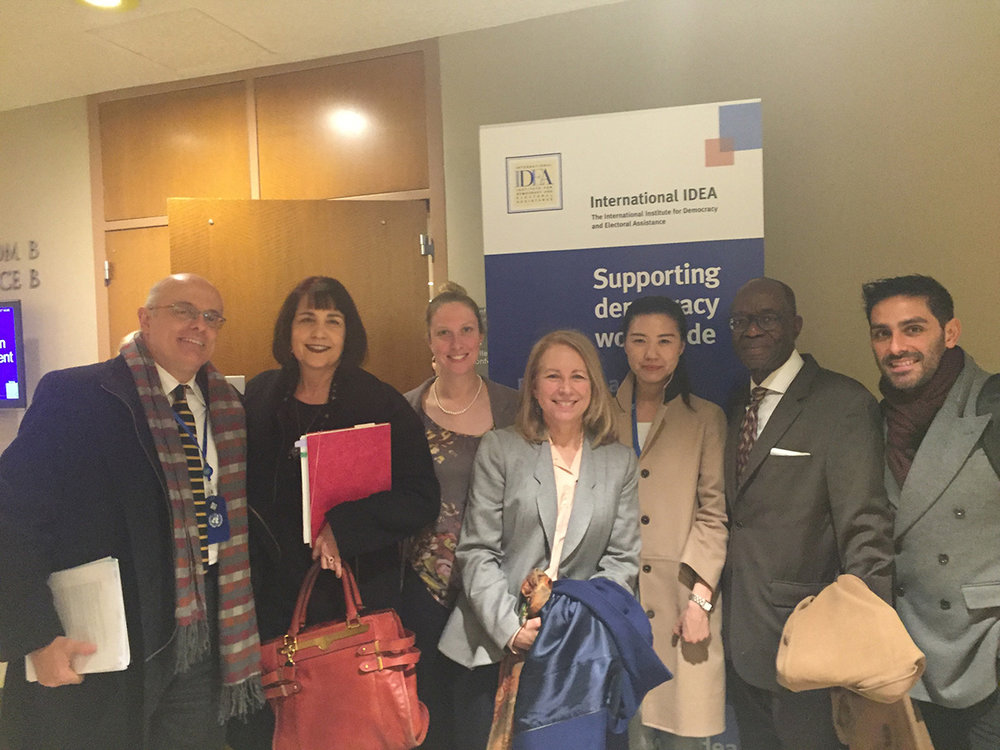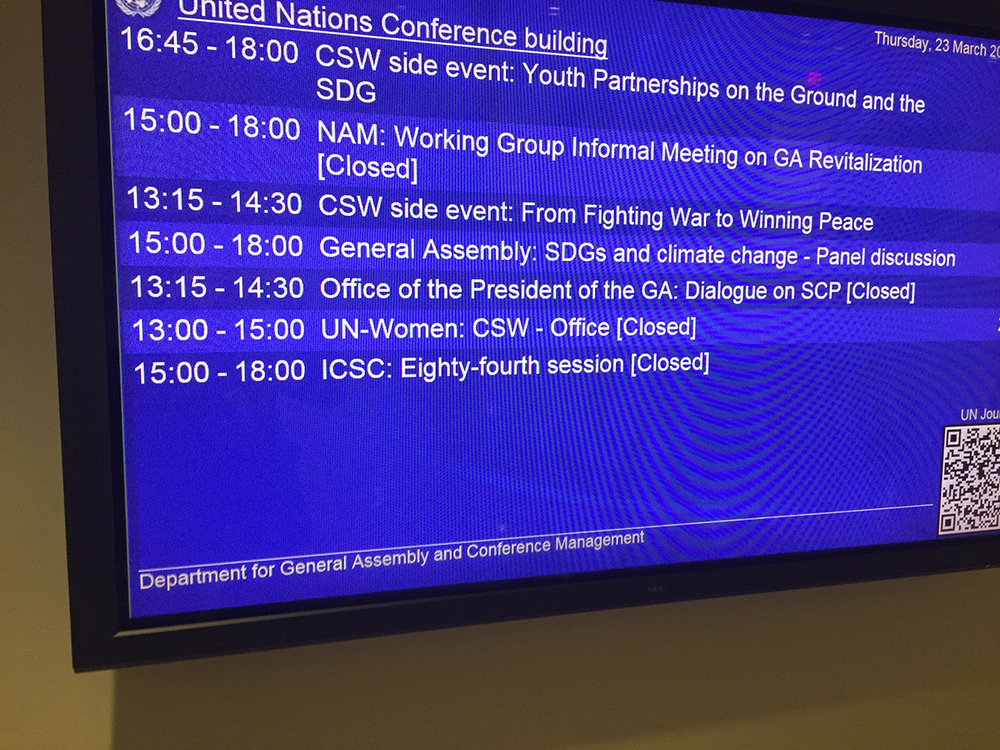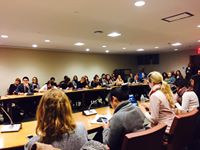CSW Side Event on “Supporting Enduring Peace in Colombia through Female ex-combatants’ reintegration”
Thursday, 23 March 2017, 13:15 – 14:30
Venue: Conference Room B, United Nations Headquarters, New York
On 30 November 2016, the Colombian Congress approved a revised peace agreement between the Colombian government and the Revolutionary Armed Forces of Colombia (FARC), officially ending Colombia’s 52-year long civil war.
The revised accord1 is both holistic and inclusive, keeping victims at the forefront and paying particular attention to the needs of women, minorities, youth, and the LGBTI population.2 In this regard, it entails a transformation of community relations and individual identity, redressing the loss of dignity and life suffered during the conflict. The peace agreement includes central pillars of a peace process, such as: security, especially in terms for demobilization, disarmament and reintegration, justice and reconciliation, local governance and development.3 Also, it addresses the specific needs of rural communities, whose suffering and healing is distinct from those living in urban areas.4
The accord has components, which are unique to Colombia’s civil war and impact on both sides. For example, it offers another element to breaking generations of cycle of violence through reparations. Further, the accord calls for FARC members—who carried out a minority of homicides and displacements but a majority of kidnappings, landmine use, and child recruitment, to participate in reparations and tell victims the truth about what happened to them and their loved ones.
In addition, the agreement maintains a component to integrate a political role for FARC. Under the agreement, FARC will develop into a political party, receiving 10 automatic congressional seats (5 in the 166-person House of Representatives, 5 in the 102-person Senate) between 2018 and 2026 (pages 70-71 in the new accord).5
The historic peace deal between the FARC and the Colombian government holds unique challenges for the thousands of female combatants reintegrating into Colombian society.
Women guerrillas made up about 40 percent of the FARC and about 25 percent of the ELN; about 20 percent of leftist guerrillas who participated in the government reintegration between 2003 and 2012 programme were women.6 Thus, it is anticipated that there are upwards of 6,000 female ex-combatants, who will be reintegrating into civil society, many of whom have experienced significant gender-based trauma during their time in the FARC.7
To this end, we will hold a side event on the reintegration of female ex-combatants at the Commission on Status of Women (CSW) on 23 March at the UN. The session will focus on the implementation of the security component, Disarmament, Demobilization, Reinsertion and Reintegration (DDRR) within the peacebuilding process, with special attention to the healing and transformation of former female combatants, from guerrilla fighter to participating members of an active, peaceful and democratic society.
In this regard, this CSW side event will examine the needs of former female combatants and their transformation from guerrilla fighters to leaders, contributing to the economic development and promoting community trust building. This will include a discussion on the promotion of reconciliation and the improvement of social vibrancy in receptor communities,8 especially in the areas of governance and political participation which can impact diverse areas ranging from legislative representation, rural engagement, to community service delivery (e.g. as entrepreneurs and managers of community supported agriculture [CSA]).
Agenda
Moderator:
Mr. Massimo Tommasoli, Permanent Observer for International IDEA to the UN
Presenter:
Ms. Yvonne Lodico, Founder, Grace Initiative
Panel:
Ms. Delphine Mechoulan, Policy Analyst, International Peace Institute
Prof. Kimberly Theidon, Henry J. Leir Professor of International Humanitarian Studies, The Fletcher School, Tufts University
Followed by an Interactive Discussion



